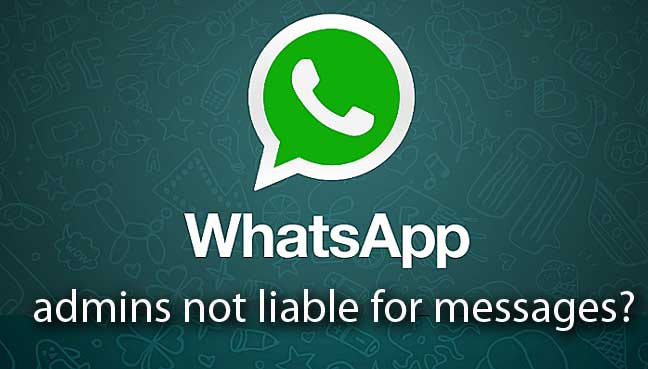In light of MCMC's guidelines for locals on managing social media platforms, ruling in Indian court states with no filtering powers given, admins cannot be blamed
An Indian High Court has ruled that administrators of WhatsApp and other social networking services cannot be held guilty of defamation if the members of the group post libellous and obscene messages.
Justice Rajiv Sahai Endlaw, who dismissed a defamation suit, said he was unable to understand how the administrator of a group could be held liable over the statements made by a member of the group, the Business Insider reported recently.
“To make an administrator of an online platform liable for defamation would be like making the manufacturer of a newsprint on which defamatory statements are published to be also liable for defamation.
“When an online platform is created, the creator thereof cannot expect any of the members thereof to indulge in defamation, and defamatory statements made by any member of the group cannot make the administrator liable,” the report quoted the Delhi High Court judge as saying.
The judge also said the group administrators were neither required nor empowered to filter all the messages before they were posted.
“It is not as if without the administrator’s approval of each of the statements, the statements cannot be posted by any of the members of the group on the said platform,” said the court.
The suit was filed by Ashish Bhalla against the administrator of a chat group, Vishal Dubey.
Various agitated buyers of a housing project in Gurgaon district had posted messages on the group, voicing out their grievances in delay in getting possession of their flats. Gurgaon, which is also known as Gurugram, is a city southwest of New Delhi in northern India.
Some of these messages targeted Bhalla, who was earlier associated with a real estate firm that had launched the project.
Bhalla then filed a defamation suit, accusing members of the groups of defaming him and maligning his image, especially when he was not associated with the housing project anymore.
The significance of this ruling in India could have some bearing in Malaysia with the internet regulatory body issuing a document yesterday on responsibility over messages on the various social media and instant messaging platforms, such as WhatsApp, WeChat, Viber, Telegram and Facebook.
Yesterday, the Malaysian Communications and Multimedia Commission (MCMC) uploaded a list of dos and don’ts on its official Facebook page for administrators of social media networks.
It reminded administrators of these groups to inform members the reason for setting up the group and to consider setting basic ground rules.
It also advised administrators not to be absent.
Elaborating on the do’s, MCMC reminded administrators to be mindful of the conditions of use set by the platform providers and to not breach the community standards set by these providers.
“Administrators must also comment on posts to ensure that discussions stay on track, check posts regularly, in order to avoid encouraging, inciting or abetting inappropriate posts,” MCMC said.
It also advised administrators to remove or even block those who persist in making inappropriate posts, including “trolls” or individuals who continuously breach the ground rules.


No comments:
Post a Comment